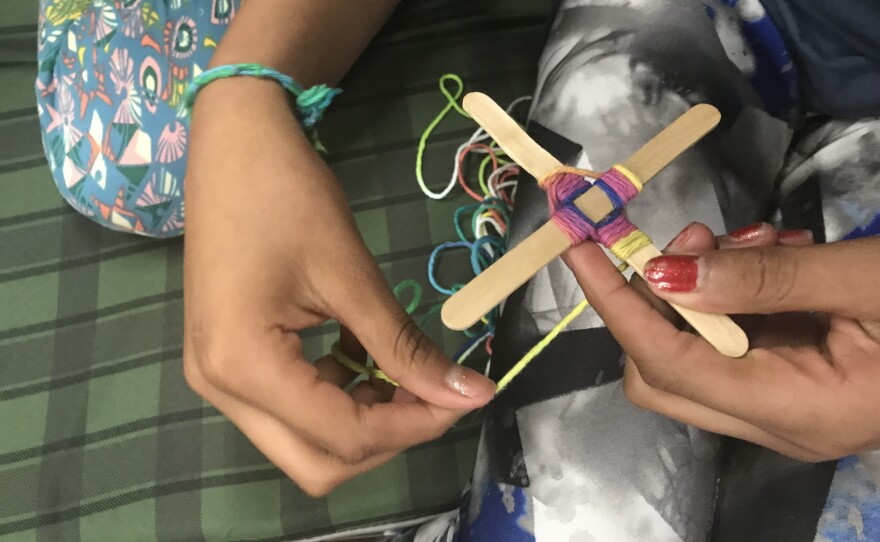Karen Perez, 32, and her four children slept on the street outside of a homeless shelter in San Diego on Jan. 29.
The Nicaraguan asylum-seekers had endured a weeks-long trek and another weeks-long wait in Mexico to enter the U.S. legally through the San Ysidro Port of Entry.
After her "credible fear" interview, immigration officials released the family with a GPS-monitoring ankle bracelet for Perez and little guidance about what to do or where to find shelter. At the port of entry, someone told Perez to go to a homeless shelter in downtown San Diego and gave her an address.
Her son had 300 Mexican pesos, which they exchanged for $15 and bought trolley tickets to downtown. But the homeless shelter was full, so they had to sleep on the street in front of it.
“I said, in the name of God, we have nothing except the clothes we are wearing. And my son said, 'What are we going to do?' And I said, someone will come help us," Perez told KPBS. "My boy said, 'I'm scared, my feet hurt. I think something might happen to us.' I said nothing is going to happen."
Families like Perez's are the reason the San Diego County Board of Supervisors plans to sue the Trump administration in the next month. Immigration officials used to help asylum-seekers connect with relatives or other sponsors before releasing them on parole.
But since December, officials have started releasing those families onto the street without resources. Providing those resources has become largely the responsibility of the San Diego Rapid Response Network, a coalition of human rights and other service groups.
The morning after Perez slept on the street, a stranger who knew about the San Diego Rapid Response Network shelter offered to take her to their temporary shelter. The County Board of Supervisors recently approved a new location for the shelter, which will open in about a month.
The Perez family is awaiting their day in court at the current shelter while searching for a more permanent arrangement. Perez is one of the few asylum-seekers who doesn't have a relative or sponsor able to take them within 48 hours.

"More than 99 percent of people do have a point of contact somewhere in the country, and we are just here to provide a safe place and a way to contact the family -- arrange travel ... a warm meal, clothing and also a medical screening," said Etleva Bejko, director of refugee and immigration services at Jewish Family Service.
But Bejko said the network is mindful of cases like Perez, who has been waiting for about two weeks and still hasn't found a place to go.
The Rapid Response Network has created a GoFundMe page, an Amazon wish list and other methods for people to donate and offer help for the asylum-seekers.
"I didn't have anything," Perez said. "I have help (now). It's a blessing of God."
You can hear this story and other local news every morning by subscribing to San Diego Stories, KPBS’ daily news podcast. Subscribe via iTunes, Google Play or your favorite podcatcher.







